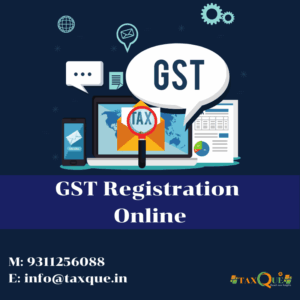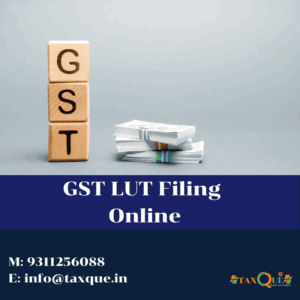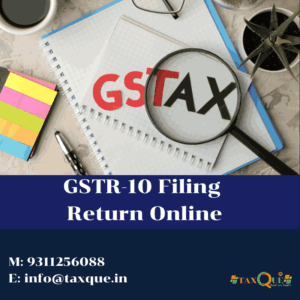Key GST Amendments Effective April 1, 2025
Recent updates have brought significant changes to the GST framework. Businesses must be aware of these amendments to maintain compliance and avoid penalties.
Major Changes for 2025
| Change/Area | Details & Requirements |
|---|---|
| Mandatory Multi-Factor Authentication (MFA) | All GST portal users must use MFA for login and e-way bill/e-invoice access. |
| Mandatory Input Service Distributor (ISD) Registration | Businesses distributing ITC on common services across multiple GSTINs under one PAN must register as ISD and file GSTR-6. |
| Lowered E-Invoicing Threshold | E-invoicing is now mandatory for businesses with annual turnover above ₹10 crore (previously ₹100 crore). |
| New Invoice Series | Businesses must start a new invoice series from April 1, 2025, for all transactional documents. |
| Biometric Authentication | Promoters and directors must complete biometric authentication at any GST Suvidha Kendra within 15 days of application. |
| Hotel Industry GST Rate | GST on hotel accommodation above ₹7,500 per day is now 18% (actual amount charged, not declared tariff). |
| Used Car Sales GST Rate | GST rate on used car sales increased from 12% to 18%. |
| Credit Note Compliance | Recipients must accept or reject credit notes via the Integrated Management System (IMS) to prevent ITC mismatches. |
| GST Waiver Scheme | Businesses that have cleared all dues up to March 31, 2025, can apply for a waiver under new schemes within three months. |
| QRMP Scheme Selection | Taxpayers with turnover up to ₹50 million can opt for quarterly returns with monthly payments by April 30, 2025. |
| Aggregate Turnover Reassessment | Businesses must recalculate turnover for FY 2024-25 to determine compliance for FY 2025-26. |
Who Should File a GST Amendment?
Businesses updating registration details (address, business constitution, authorized signatory, etc.)
Entities required to comply with new MFA, ISD, or e-invoicing rules
Taxpayers seeking to update core or non-core GST registration fields
Required Documents for GST Amendment Filing
| Document Type | Details/Description |
|---|---|
| GST Registration Certificate | Existing GST registration details |
| PAN Card | Of the business and authorized signatory |
| Aadhaar Card | Of the authorized signatory |
| Proof of Address/Change | Utility bill, property tax receipt, rent agreement, or NOC from owner |
| Board Resolution/Consent | For changes in authorized signatory or business structure |
| New Invoice Series Format | Sample of new invoice series (if applicable) |
| Biometric Authentication Proof | Confirmation of biometric authentication (for directors/promoters) |
| ISD Registration Documents | For businesses distributing ITC across GSTINs |
| Digital Signature Certificate (DSC) | For companies/LLPs; EVC for individuals/proprietors |
| Other Supporting Documents | As required for specific amendment requests |
GST Amendment Online: Step-by-Step Process
1. Login to the GST Portal
Use your GSTIN, username, and password to log in.
2. Select Amendment Application
Navigate to Services → Registration → Amendment of Registration.
3. Update Required Fields
Edit core or non-core fields such as business address, authorized signatory, business details, or invoice series.
4. Upload Supporting Documents
Attach all required proofs and supporting documents as per the amendment type.
5. Submit and Verify
Submit the application using DSC or EVC. Complete biometric authentication if mandated.
6. Track Application Status
Monitor the status of your amendment application on the GST portal and respond to any queries from the authorities.
7. Download Acknowledgement
Once approved, download the updated GST registration certificate and keep it for your records.
GST Amendment Compliance Checklist
| Step/Requirement | Description |
|---|---|
| Eligibility Check | Confirm the need for amendment based on business changes or new rules |
| Document Collection | Gather all required documents and proofs |
| Biometric Authentication | Complete within 15 days if required |
| ISD Registration (if applicable) | Register as ISD and prepare to file GSTR-6 |
| New Invoice Series | Implement new invoice series from April 1, 2025 |
| E-Invoicing Compliance | Ensure all B2B invoices are uploaded within 30 days if above threshold |
| Credit Note Compliance | Accept/reject credit notes via IMS to avoid ITC mismatches |
| Deadline Compliance | File amendments and comply with new rules within the stipulated timelines |
| Acknowledgement | Download and retain updated registration certificate |
Frequently Asked Questions (FAQs)
What are the major GST changes effective from April 2025?
Key changes include mandatory MFA, ISD registration, new invoice series, biometric authentication, stricter e-way bill rules, and a lower e-invoicing threshold.
Who needs to register as an Input Service Distributor (ISD)?
Businesses distributing input tax credit on common services across multiple GSTINs under a single PAN must register as ISD and file GSTR-6.
What is the new e-invoicing threshold?
E-invoicing is now mandatory for businesses with annual turnover above ₹10 crore, with invoices to be uploaded within 30 days.
What is required for biometric authentication?
Promoters and directors must complete biometric authentication at a GST Suvidha Kendra within 15 days of application.
What happens if I do not comply with the new GST rules?
Non-compliance may result in penalties, denial of ITC, delayed registration, or other legal consequences.
Get Started
Contact us today for expert assistance in filing your GST amendment accurately and on time. Experience a hassle-free, secure, and fully compliant amendment process—so your business can operate smoothly under the latest GST regulations.
Let our professionals handle your GST amendment so you can stay compliant and focus on growth.





Reviews
There are no reviews yet.